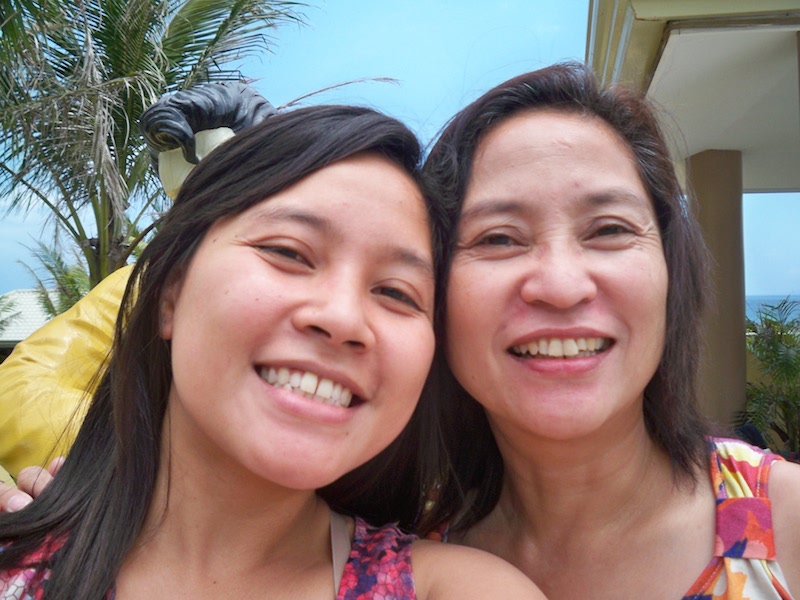What It’s Like to Be the Daughter of a Foreign Worker
After going through the long and tedious motions of checking into the Gimhae International Airport in Busan, South Korea, I finally decide to rest. I take a seat in the waiting area near my boarding gate and overhear a conversation between two women seated in front of me.
“Didn’t bring much,” says the short-haired woman on the left. She’s wearing a striped shirt with jeans and sneakers. “Just my suitcase and this carry-on bag.”
“Me too,” says the other woman. She has long hair tied back into a ponytail and a red shawl draped over her shoulders. “I sent my boxes through cargo. They told me they will arrive in the coming weeks. I started preparing my boxes when I got here. On my days off I go shopping and fill them with what I bought –”
“I do that too!” says the short-haired woman, reaching out and touching the other woman’s arm. “I buy anything that can only be bought here – at least as much as I can afford. As long as it still fits, I put it in. Then when it’s full, I move on to another box.”
They told us that we were blessed, that we had it good, that with all the money Mama would save up, our family would live a life of luxury once she came home for good.
“Yeah, that’s what I do too,” says the red-shawl woman as she checks the time on her watch. “So how long will you be home for?”
“30 days. You?”
“45 days. I asked my employer if I could extend my stay for another 15 days for my son’s birthday.”
“Oh, that’s good. How old is your son?” the short-haired woman asks.
“He’s turning 13. He’s a teenager now so I’m thinking of going back home for good. You know how teenagers are.”
“Mm-hmm,” nods the woman on the left. She tucks her hair behind her ears and then crosses her legs. “My daughter’s 15 and I want to go home for good too. But I don’t have enough saved up yet for her college.”
“My husband and I are also saving up for our own house. If I go back for good, I will need to find another job. But you know that jobs back home don’t pay as much as they do here. But I also want to be with my son now that he’s a teenager. I’ve missed out on a lot already. I don’t want to miss any more.”
We sent Mama letters and voice tapes. We eagerly waited for her call on weekends. We excitedly opened the cargo boxes she sent over, full of pasalubong, or souvenirs, for us.
“I know how you feel. It’s good you have your husband with you. I’m raising my daughter alone.”
Just then, I hear my flight number being called. The voice on the speaker announces that our flight is ready for boarding. I grab my carry-on bag and get in line.
As I settle into my seat on the plane, I think of the conversation I overheard. I am the daughter of a foreign worker. My mother had to find a higher-paying job to support our family and our dreams. She worked as a nurse abroad for five years. During those years, Papa took the role of both father and mother. My older brother and I helped him out and we learned to be independent. We sent Mama letters and voice tapes. We eagerly waited for her call on weekends. We excitedly opened the cargo boxes she sent over, full of pasalubong, or souvenirs, for us.
She came back to the Philippines once a year, sometimes staying only for thirty days, other times staying longer. On her fifth year of working overseas, Mama got pregnant with our youngest brother on a visit home and decided to come home for good. I remember that conversation very well:
“Anak, I’m coming home na,” she said.
“Really Ma?” I said. I was overjoyed and excited with the news.
“Yes. For good. You and your Kuya are growing up so fast. I don’t want to miss any more. I want to be there for both of you.”
She was on her own in a foreign land, worrying about her family, feeling guilty for leaving them.
In those years when Mama was abroad, relatives and friends told us that she was lucky, that she was privileged to land a job overseas. They told us that we were blessed, that we had it good, that with all the money Mama would save up, our family would live a life of luxury once she came home for good.
They did not realize, however, that being a foreigner worker is difficult. It entails a lot of hard work and sacrifice. Instead of being there and taking care of her family, my mother was taking care of other people. She missed birthdays and holidays. She missed milestones. She was on her own in a foreign land, worrying about her family, feeling guilty for leaving them. She was alone, and the loneliness was palpable.
I look around the plane and wonder how many people on this flight are overseas workers. I think about the women in the waiting area. I hope they are treated well by their employers. I hope that in time, they get everything they want. And in time, they be reunited with their families back home for good.

What It’s Like to Be the Daughter of a Foreign Worker









One thought on “What It’s Like to Be the Daughter of a Foreign Worker”